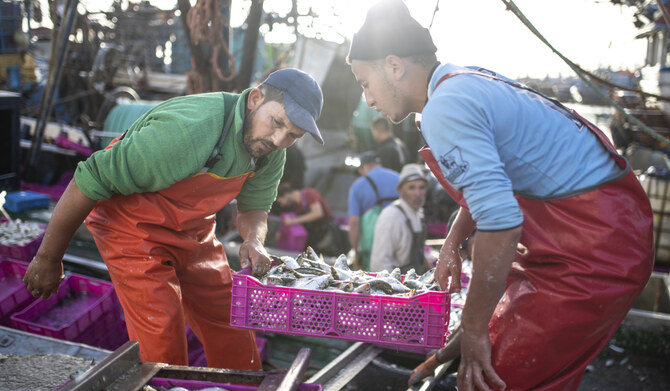LUXEMBOURG: The EU’s top court has confirmed an earlier ruling canceling trade deals allowing Morocco to export fish and farm products to the bloc from the disputed Western Sahara region.
The Court of Justice of the European Union, or CJEU, rejected all appeals against the 2021 verdict in a victory for the Western Saharan independence movement, the Polisario Front.
While the fish agreement has expired, the agricultural product deal is still active.
The court said the protocol should stay in place for another 12 months “because of the serious negative consequences which its immediate annulment would entail for the external action” of the EU.
Morocco, an important trading partner with the 27-nation EU, views the Western Sahara as an integral part of its territory, but the Polisario, recognized internationally as the representative of the Sahrawi people, has long sought independence there.
The EU’s Court of Justice affirmed that the deals allowing exports from the former Spanish colony and the rest of Morocco “was concluded in breach of the principles of self-determination.”
The court said consent from a people does not always need to be explicit “where the agreement confers on that people a specific, tangible, substantial and verifiable benefit.”
But it added that “as the agreements at issue manifestly do not provide for such a benefit,” the court confirmed the annulment of the deals.
Morocco controls around 80 percent of Western Sahara and has offered autonomy, while insisting it must retain sovereignty.
At stake are an overland route to West African markets, plentiful phosphate resources and rich Atlantic fisheries along the territory’s 1,100-kilometer (680-mile) coastline.
The 2021 court ruling had been hailed as a “great victory” by the Polisario movement and was welcomed by Morocco’s regional rival Algeria.
Replying to the latest verdict on Friday, Morocco’s Foreign Ministry decried what it said were “obvious legal errors” but added it was not “in any way concerned” by the decision, as it was not a party to the case.
It called on the EU to take the necessary measures to respect its international commitments.
It warned that Rabat did not subscribe to agreements that did not respect its territorial integrity — a reference to its claims over Western Sahara.
EU chief Ursula von der Leyen said the European Commission was analyzing the ruling and reiterated that the bloc highly valued its “long-standing, wide-ranging and deep” strategic partnership with Morocco.
“The EU firmly intends to preserve and continue strengthening close relations with Morocco,” she said in a joint statement with EU foreign affairs boss Josep Borrell.
The EU and Rabat signed an association deal in 1996, giving Morocco preferential tariffs, which was later extended in 2019 to include products from Western Sahara.
The main benefit for Rabat was lower costs of exporting agricultural goods to the bloc, while the EU received access to Atlantic fishing waters.
The fishing protocol had allowed up to 128 European ships to access Moroccan and Western Sahara fishing waters for four years.




























